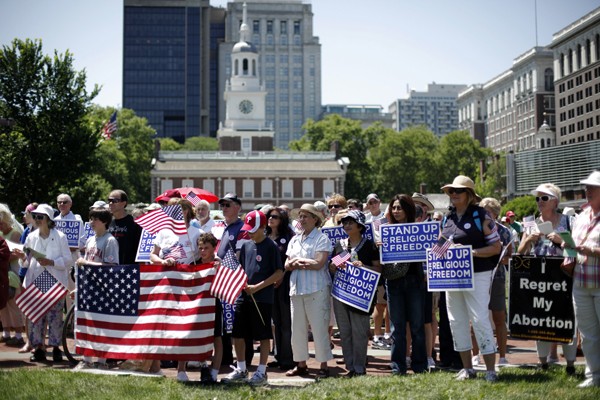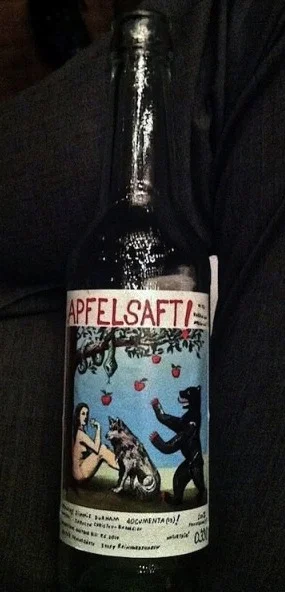In America's 13 Colonies, Catholic Bishops Had Little Religious Freedom | 'Documenta' Opens in Kassel, Germany
/About 200 people rallied in Philadelphia on Friday, demanding that the federal government stop what they perceive to be “morally offensive” health-care regulations. The protest — part of 150 rallies in America yesterday under the banner “Stand Up for Religious Freedom” — had symbolic meaning due to its location at Independence Hall, home of the Liberty Bell.
America’s Catholic bishops seek to define religious freedom as a series of right that permit them to reject a wide range of civic and government-protected liberties. Increasingly, the bishops demand a form of national theocracy, one that subordinates the rights of citizens and in particular, women citizens.
At issue yesterday is the Obama contraception mandate compromise, a decision that has ripped the Catholic Church in two.
Catholics stood proudly yesterday, embracing the Liberty Bell in Philadelphia as their symbol of religious freedom. In fact, when America was founded, Catholics were a tiny minority in the original 13 colonies. The first federal census of 1790 found America to have 3,939,000 citizens, with about 25,000 Catholics in residence.
In all but three of the original 13 original colonies, “Catholics were the subject of penal measures of one kind or another”, writes Dr. Marian T. Horvat.
British settlers had no love of the Catholic Church in the least, fearing the very kind of theocracy in America that the Catholic bishops now propose. A theocracy is NOT what the founding fathers had in mind for America. Most of them were deists, believing in a more abstract infusion of spirituality throughout the universe. Turning to the 2010 book ‘America’s Four God’, the founding fathers believed in god #4.
‘Documenta’ in Kassel, Germany
The Daily Beast author Blake Gopnik writes that Kassel, Germany makes Peoria seem like Paris. The city may be no great shakes, but twice a decade for the past 57 years, Kassel’s Documenta festival is home to the world’s culturati.
This edition’s creative director is American Carolyn Christov-Bakargiev, who has worked mostly in Europe, has a passion for apples. Writes Gopnik:
For me, knowledge of Documenta’s world begins, as it should, with an apple. Or rather 372 of them, of every variety, meticulously drawn over many decades by a German priest and activist named Korbinian Aigner, who bred fruit while interned by the Nazis at Dachau. Packed onto two walls at Documenta, this nonartist’s apples, drawn in color and pretty much at life size, stand for artistry at the service of fact, a crucial constellation in Christov-Bakargiev’s cosmos.
The curator’s apple obsession, expresses itself in a bottle of apple juice offered to the press free of charge, inscribed with her name as its creator and with an allegorical label by the American artist Jimmie Durham.
The tart significance of said apple label isn’t lost on us at AOC. After all, in Latin the word apple means evil.
Read on in AOC Women's News: ‘Mysteries of the Garden of Eden’ | History Channel | In Latin Apple Means Evil.


























































